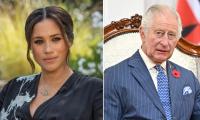The people of Pakistan observe the “Independence Day” every year on 14th August to commemorate the immense sacrifices rendered by the Muslims of the Subcontinent to achieve a homeland of their own for ordering their lives in accordance with their religion, culture and traditions. The day would help raise awareness among the new generation about the struggle of the Muslims for their right to self-determination. The territory of Pakistan had been carved out of the old British Indian Empire and constituted into an independent political state on August 14, 1947. There have been several stages in the development of Muslim political struggle that ultimately culminated in the achievement of Pakistan. Several Muslim leaders came forward to lead the Muslims and take them a step forward to the attainment of their goal. Allama Iqbal’s poetic activity contributed a good deal to show his great love for the country in which he was born and brought up. It was the towering personality of the Quaid-e-Azam who united the Muslims and assembled them round on the focused objective of Pakistan.
Pakistan achieved its independence as a result of the ‘Two Nation Theory” propagated by Jinnah in the Lahore conference of the Muslim League in 1940, where Jinnah has expressed clearly that Hindus and Muslims cannot live together in one country as they are of separate nations. During 1937-39, several Muslim leaders inspired by Iqbal's ideas, presented elaborate schemes for partitioning the Subcontinent according to Two-Nation Theory. Quaid-e-Azam awakened and organized the Muslims by assembling them on a single platform. Many Muslims feared the destruction of their way of life in a Hindu-dominated independent India. They belonged to two separate and distinct nations and therefore the only chance open was to allow them to have separate states. Expressing his views on Hindu-Muslim relations in the 20th Century, Quaid-i-Azam Muhammad Ali Jinnah observed: “The Hindus and Muslims belong to two different religious philosophies, social customs and literature. They neither intermarry, nor inter-dine together, and indeed they belong to two different civilizations which are based on conflicting ideas and conceptions. Their aspects on life and of life are different.”
The life of Jinnah and his activities demonstrate very clearly a man driven by the idea of an modern Islamic state for the Muslims of the Indian Subcontinent. Jinnah called Muslims “a nation”, stressing their distinct religion, culture, language, and civilization, and calling on them to "live or die as a nation". He even called the League flag 'the flag of Islam', arguing, "You cannot separate the Muslim League from Islam”. He said, “Islam gives us a complete code of life. It is not only religion but it contains laws, philosophy, and politics. In fact, it contains everything that matters to a man from morning to night.”
In a remarkable scholarly work “Jinnah: India-Partition-Independence”, Jaswant Singh, a former union minister and a co-founder of right wing Hindu Bhartiya Janta Party (BJP), raised interesting questions regarding the credibility of Two-Nation Theory. However, the conclusion of Jaswant’s discourse is largely incorrect. He failed to appreciate the significance of the Two-Nation Theory, which he disproves. He wrongly infers that Jinnah’s demand of Pakistan was merely a negotiating tactic to safeguard just claims of Muslims in India. Undoubtedly, Jinnah was a nationalist at the beginning of his political career and so were Sir Syed Ahmad Khan, Allama Iqbal and other top leaders of Muslim cadre but we see a transition of ideology in all these leaders with the passage of time. Sir Syed, whose reformation movement was not limited to Muslims, later was found saying that gulf between these two nations will only widen, who would live, would see. This is exactly what happened. On the other hand we also see a complete changeover in Iqbal’s doctrine of nationhood.
We made an unparalleled history when, led by the Quaid-e-Azam Mohammad Ali Jinnah, the Muslims of India struggled for and won Pakistan against unimaginable odds. With the implementation of sagacious policies by the new democratic dispensation, it can witness the emergence of Pakistan as a highly developed, prosperous and modern Islamic state. Let us make a promise with ourselves to work together to realise Pakistan’s true and great potential. Quaid-e-Azam awakened the Muslims, united them and created such a popular and democratic wave that enthralled optimism among the Muslims. It is necessary today to once again awaken and organize the people through democratic means and to motivate them for the realization of the aims and objectives laid at the time of independence in 1947.
During the meeting, the duo discussed human rights situation in the Indian Illegally Occupied Jammu and Kashmir
Poliovirus in Quetta was detected in the environmental sample collected on March 26, 2024, from the ‘Surpul’...
Local police and the district administration reached the scene and evacuated the staff
Court also directed the speaker of the KP Assembly to carry out his constitutional responsibilities and administer...
Director-General Zafar Sultan and senior journalist Siddique Sajid were among 12 Namazis at Jumaa prayers who lost...
According to Pakistan High Commission in London, Gen Sanders stated that there was no comparison to the Pakistan...







